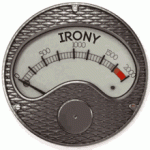It was raining steadily when we visited Beita. Women were trying to cook outdoors in the rain, others in semi-demolished houses. A house may have a dozen or more inhabitants. The number of people left homeless is considerable, apart from the many arrested and deported. Mousa Saleh’s mother and sister, three months pregnant, are in prison, their homes destroyed. The sister has been charged with assault, and according to Israeli reports, may be charged with complicity in the murder of Tirza Porat.28 As for Aldubi, he is not to be charged, because, as the army spokesman said, “I believe the tragic incident and its result are already a penalty” — for the murderer, that is, not the Araboushim who raise their heads.29
Of the victims of the events in Beita, only the name of Tirza Porat is known, and only the circumstances of her killing merit inquiry and comment. This is only to be expected in the reigning climate both here and in Israel. Who would have heard the name of Intissar al-Atar, a 17-year-old Palestinian girl shot and killed in a schoolyard in Gaza last November 10, or of her killer, Shimon Yifrah of the Jewish settlement of Gush Katif in the Gaza Strip, arrested a month later and released on bail because, the Supreme Court determined, “the offense is not severe enough to order the arrest of the accused, and in this case there is no fear that Yifrah will repeat the offense or escape from his punishment”? Or of Jude Abdallah Awad, a shepherd murdered, his companion severely wounded, when a Jewish settler tried to drive them from a field on May 5, an incident meriting 80 words in the New York Times (and none when the settler was released on bail, charged with manslaughter)? Or Iyad Mohammed Aqel, a 15-year-old boy murdered by Israeli soldiers, his head “beaten to a pulp” according to a witness, after he was dragged from his home in a Gaza refugee camp?30
The reaction here and in Israel to the grossly discriminatory treatment of Arabs and Jews by the courts stands alongside the prevailing double standard on terror and rights. Palestinian artist Fathi Ghaban receives a six-month prison sentence for using the colors of the Palestinian flag in a painting. An Arab worker caught sleeping illegally in Tel Aviv receives the same sentence, with two-months additional imprisonment if he does not pay a heavy fine. Four young Arabs are sentenced to fines and three months at hard labor for having waved a Palestinian flag in a protest demonstration after the Sabra-Shatila massacres. In contrast, a sergeant who ordered two soldiers to bury four Palestinians alive with a bulldozer receives four months, and two soldiers, whose prolonged beating of captured Palestinians horrified Europe after a CBS filming, received three months probation. Another soldier received a month’s suspended sentence for killing an Arab by firing into a village. A settler found guilty of shooting directly into a crowd of demonstrators was sentenced to a rebuke; another received six months of “public service” outside prison for killing a 13-year-old boy after an incident on a road in which he was under no danger according to testimony of army observers. President Herzog reduced the sentences of Jewish terrorists who murdered 3 Palestinians and wounded 33 in a gun and grenade attack at Hebron Islamic College from life in prison to 15 years; further reductions are doubtless to come. Three other members of the terrorist underground were released after 2 years in prison for the attempted murder of two West Bank mayors, one of whom had his legs blown off, while a military court sentenced two Arabs from Kafr Kassem, the scene of one of Israel’s worst massacres in 1956, to 21 years imprisonment for allegedly planting two bombs that exploded with no injuries. The ideologist and second highest leader of the Jewish terrorist underground, Yehuda Etzion, convicted of planning the bombing of the Dome of the Rock, organizing the attack on the mayors and other atrocities, and stealing 600kg of explosives from a military base, was released to a religious school in Afula after serving half of a ten year sentence, and a presidential pardon is under consideration. Palestinian storekeepers are threatened with the same sentence — five years in prison — “if they failed to wash anti-Israeli graffiti off their buildings and remove Palestinian flags,” wire services report.31

